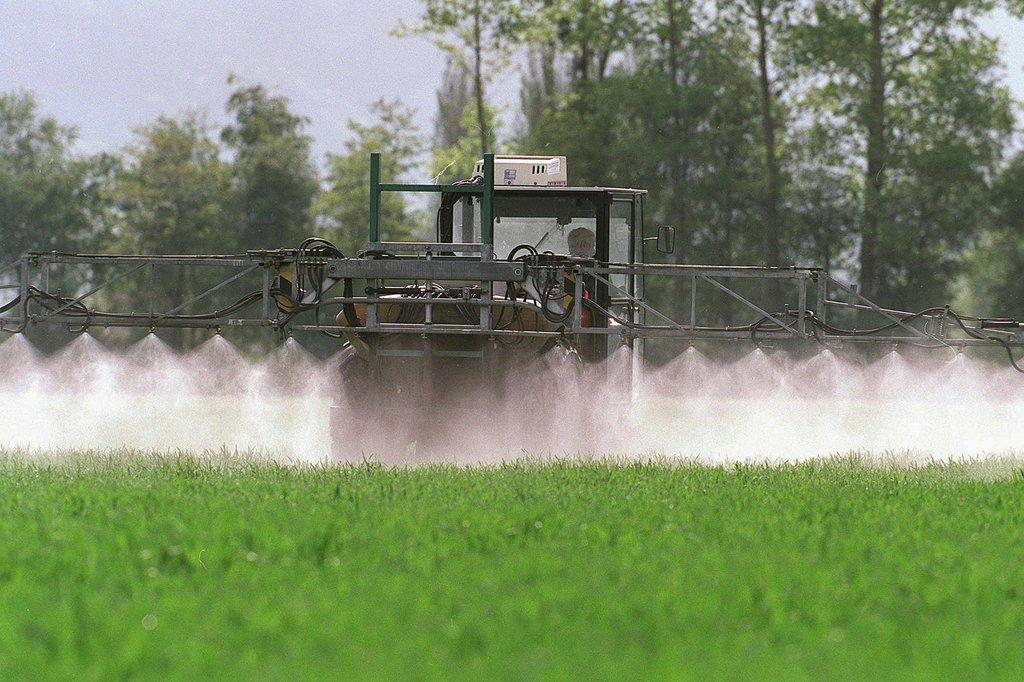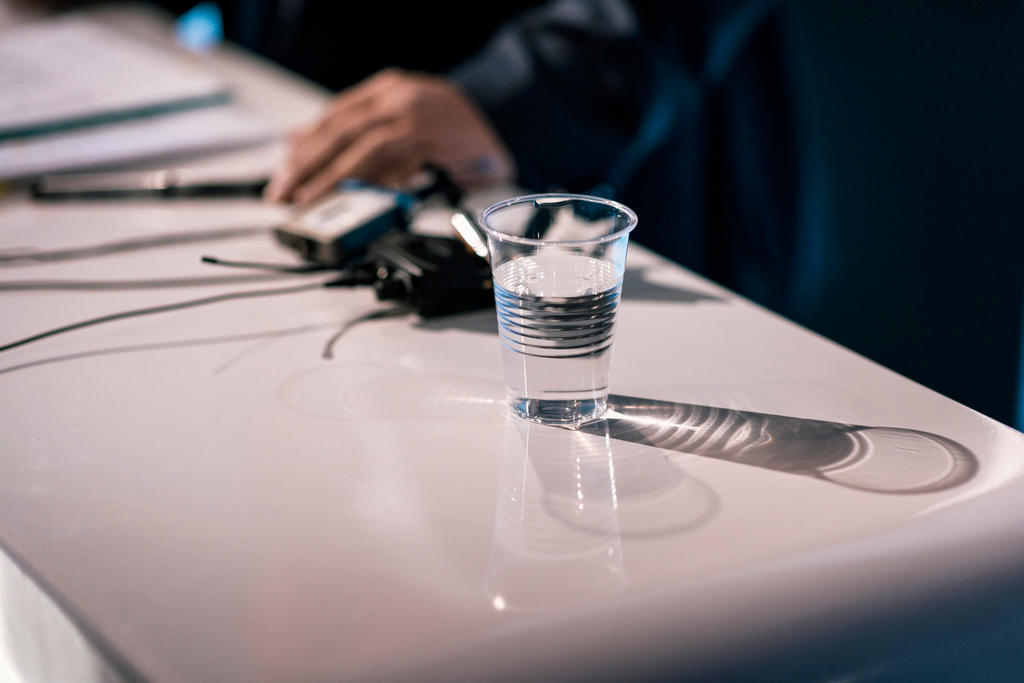
Anti-pesticide farm initiative passes the signature stage

Campaigners have handed in 114,420 signatures by Swiss citizens in favour of the “Clean Drinking Water and Healthy Food" initiative, which aims to cut direct subsidies to farmers who use pesticides or antibiotics.
The text of the initiativeExternal link, presented on Thursday, states that the federal authorities must ensure that agriculture contributes to the security of the population’s supply of safe food and clean drinking water.
Under current policy, Swiss farmers receive CHF2.8 billion ($2.9 billion) in subsidies. Most farms must meet minimum standards known as ‘required ecological services’, with production that encourages biodiversity, respectful animal-rearing, soil rotation, and other measures. The initiative, however, calls for pesticide-free agricultural production, and requires that livestock be given feed produced on the farm.
Farmers using antibiotics on their animals as a preventive measure or regularly in their production processes would lose subsidies, the campaigners argue. Agricultural research, training and investment would also depend on these criteria.
The campaigners, including Greenpeace Switzerland, Birdlife Switzerland, the Swiss Fishing Federation, say 2,000 tonnes of pesticides are used every year nationwide, of which 85-90% on farms, and 38 tonnes of antibiotics are given to cattle to stop them falling ill. They argue that the intensive use of pesticides and antibiotics on farms is contaminating rivers, streams, and groundwater, and is destroying biodiversity.
Pesticides versus productivity
Last September, the government announced that it had decided on an action plan to reduce by 50% the risks of long-term soil and water pollution by adopting a more sustainable policy to protect crops over the next ten years. However, it is not possible to dispense with pesticides altogether, according to the Federal Agriculture Office.
The Swiss Farmers’ Union (USP) says it also wants to reduce the amount of pesticides in agriculture, but is against a total ban. Without pesticides, yields would fall by 20-40%, it said last June. USP President Markus Ritter warned that the Swiss food industry needs a secure and continuous supply of raw materials, and that even “organic food cannot do without pesticides”.
In parallel, signatures are being gathered in Switzerland for a similar initiative, which calls for a total nationwide ban on using and importing synthetic pesticides.
A poll last year found that 65% of Swiss people want local farmers to use fewer pesticides on their fields.

More
A look inside Zurich’s water treatment system

In compliance with the JTI standards
More: SWI swissinfo.ch certified by the Journalism Trust Initiative


























You can find an overview of ongoing debates with our journalists here . Please join us!
If you want to start a conversation about a topic raised in this article or want to report factual errors, email us at english@swissinfo.ch.